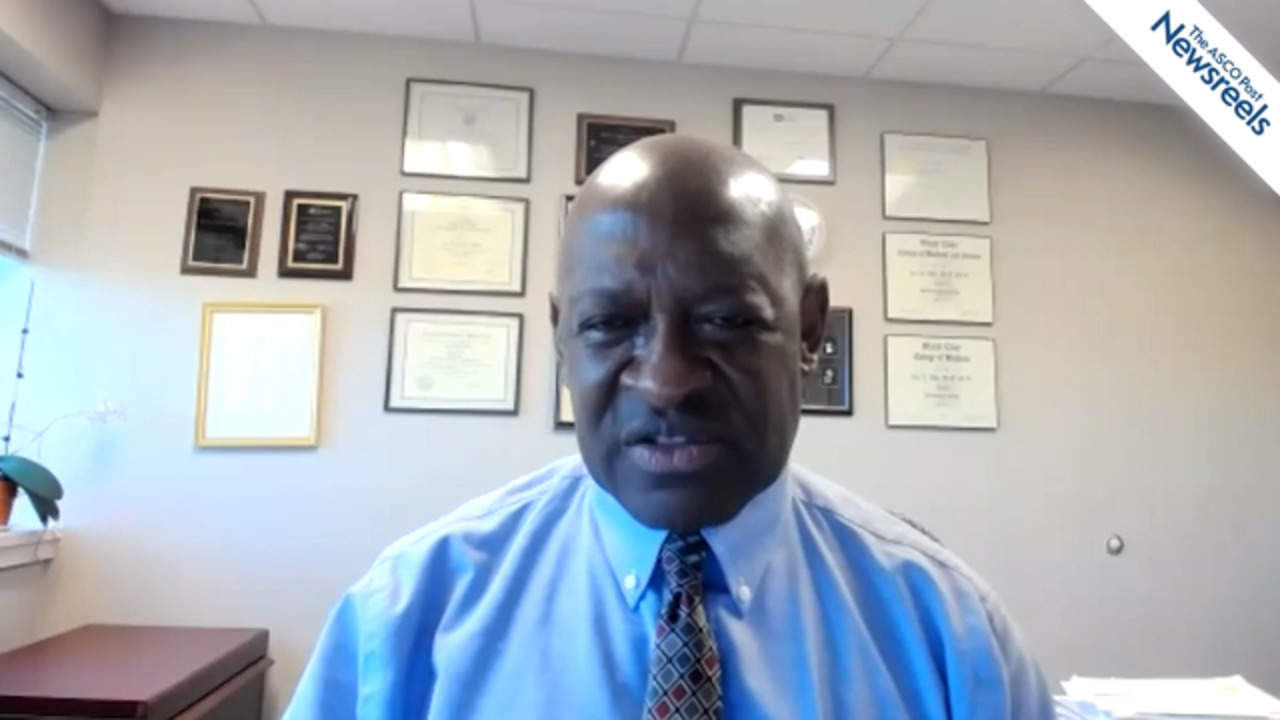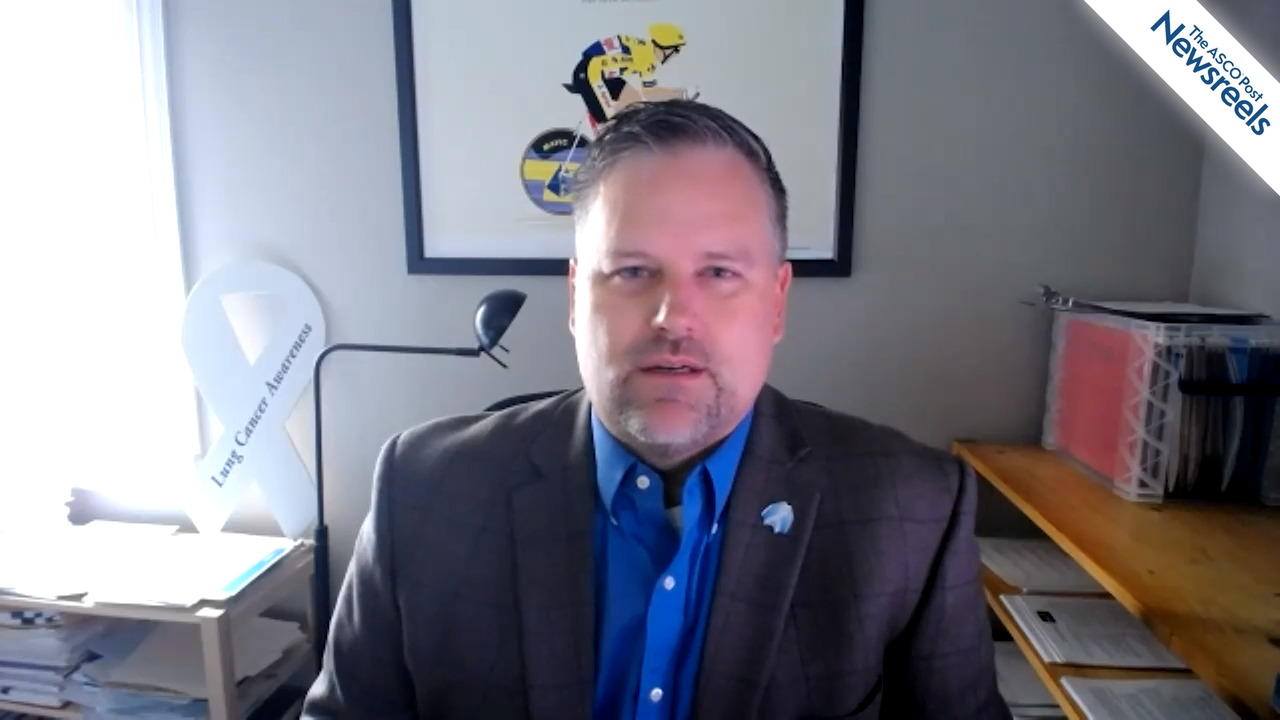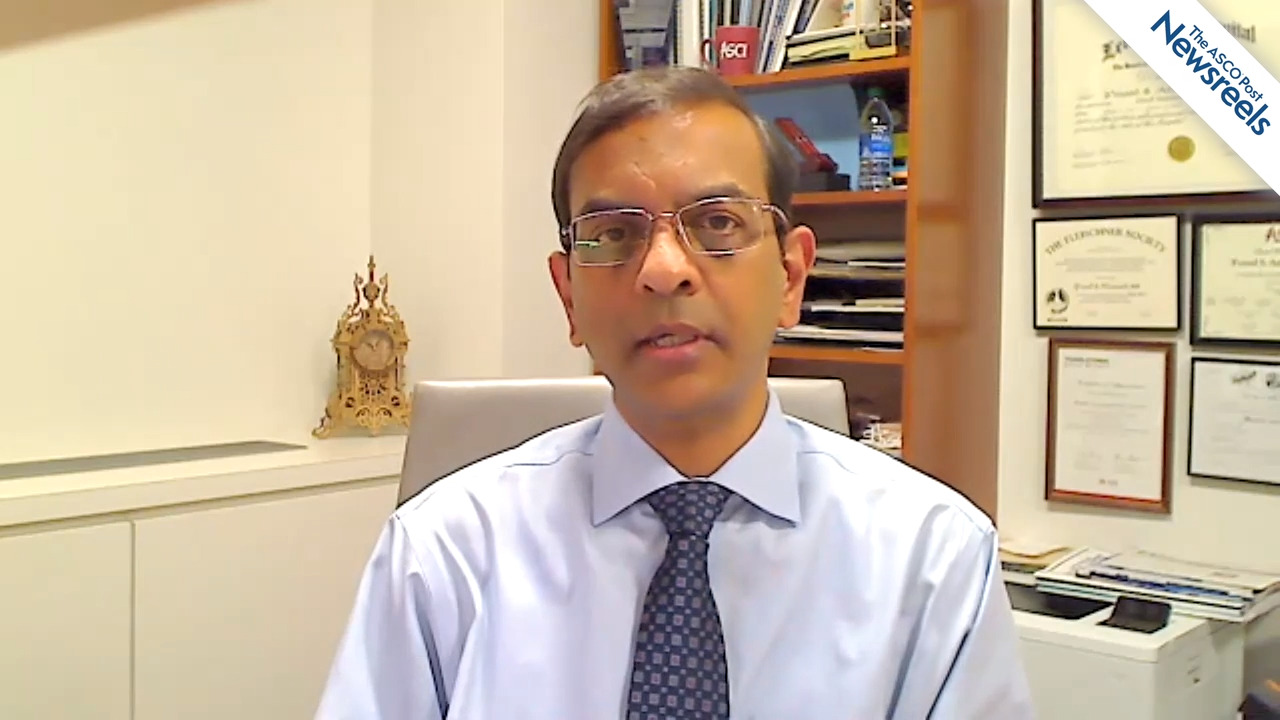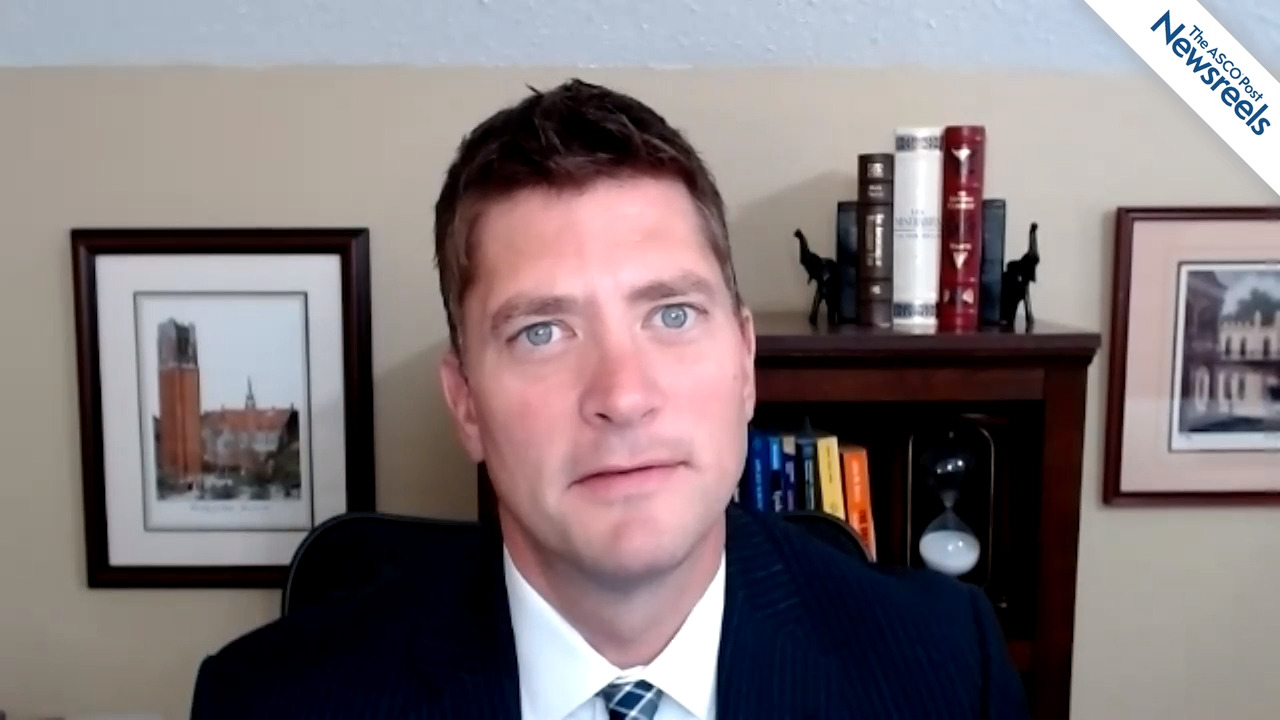Christine D. Berg, MD, on Lung Cancer Deaths Attributable to Air Pollution: Global Variability
IASLC 2021 World Conference on Lung Cancer
Christine D. Berg, MD, of the National Cancer Institute, discusses air pollution as a carcinogen that disproportionately affects poorer, overburdened communities and the elderly and frail—especially in countries where smoking rates are high and the use of coal predominates. Clinicians, Dr. Berg says, can help their patients by advocating for switching to clean energy and transportation and helping health-care facilities become more sustainable (Abstract PL02.07).
The ASCO Post Staff
Alex A. Adjei, MD, PhD, of the Mayo Clinic, talks about the fact that despite strides in lung cancer treatment, more than 60% of the world’s patients with the disease are in countries with relatively scarce medical resources, where less than 50% of patients are screened. There is a great need, says Dr. Adjei, to focus on ways to reduce disparities and remove the barriers of cost, access, quality, and lack of awareness (Abstract PL01.03).
The ASCO Post Staff
Jamie L. Studts, PhD, of the University of Colorado School of Medicine, discusses data that show the stigma surrounding lung cancer hinders optimal patient care. This information stems from a campaign launched by the National Lung Cancer Roundtable to eliminate this stigma and offer a range of initiatives that could alter societal perspectives (Abstract PL04.02).
The ASCO Post Staff
Prasad S. Adusumilli, MD, of Memorial Sloan Kettering Cancer Center, discusses phase I/II research he is conducting on CAR T cells delivered intrapleurally in patients with mesothelioma. The treatment is targeting mesothelin, a cancer cell-surface antigen overexpressed in many solid tumors and associated with aggressive disease (Abstract PL05.01).
The ASCO Post Staff
Matthew Smeltzer, PhD, of the University of Memphis, discusses a study of 171 trials in 45 countries that saw reduced enrollment as a result of the COVID-19 pandemic. Among the recommended steps to remove barriers and improve participation are more flexibility in allowing telehealth visits with researchers as well as clinicians, local lab testing and scans, altering trial schedules, and mailing experimental agents to patients whenever possible (Abstract PL02.09).
The ASCO Post Staff
Nasser K. Altorki, MD, of Weill Medical College of Cornell University and NewYork-Presbyterian Hospital, discusses phase III data from the IMpower010 study, which showed that, compared with best supportive care, atezolizumab improved disease-free survival in patients with stage II–IIIA non–small cell lung cancer. These findings applied across most disease stages and most surgery types and chemotherapy regimens, as well as in patients with nodal involvement (Abstract PL02.05).





